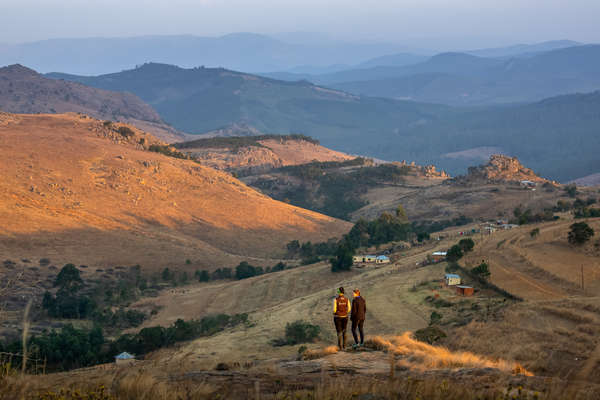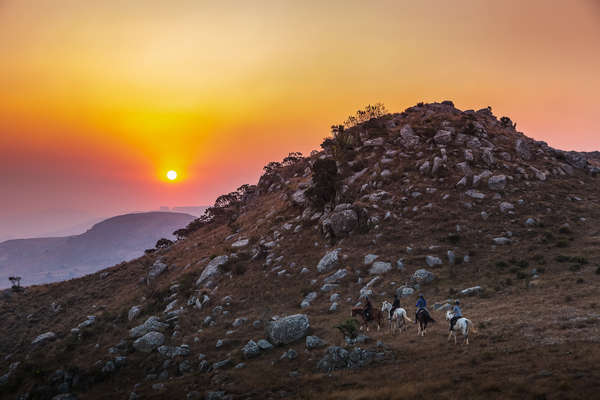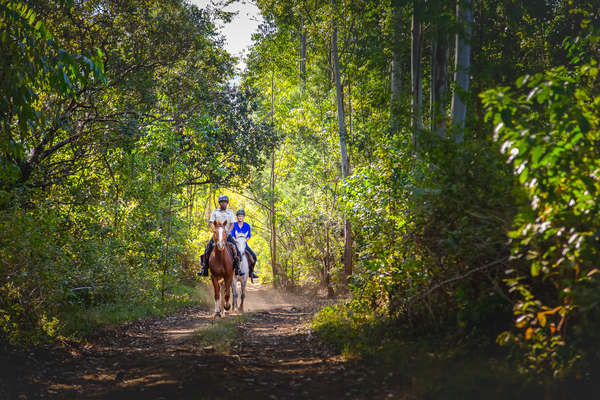If you are visiting Eswatini, your passport should be valid for 3 months from the date you arrive and have at least 2 blank pages. As an international traveller you are highly likely to pass through South Africa before and/or after travelling to Eswatini, please note that you will need to have an additional 2 blank pages to enter and/or leave South Africa.
For tourists, visas are not required by citizens of most Commonwealth countries, the USA, and most European countries, please
click here to check the list of countries that do not require visa. Leisure or business travellers are allowed to visit Eswatini for a period of 30 days. Following this period, you will have to ask for a 30-day extension at the Ministry of Home Affairs.
Please note that if you are leaving Eswatini by plane there is a mandatory tax of E30 (local currency).
Source:
https://www.gov.uk/foreign-travel-advice/eswatini/entry-requirements
https://www.thekingdomofeswatini.com/visa-guide/
At least 8 weeks before your trip, check the latest country-specific health advice from the
National Travel Health Network and Centre (NaTHNaC). Each country-specific page has information on vaccine recommendations, any current health risks or outbreaks, and factsheets with information on staying healthy abroad.
Travellers should ideally arrange an appointment with their GP around five weeks before travelling. This appointment provides an opportunity to assess health risks taking into account a number of factors including destination, medical history, and planned activities. Your healthcare provider may also give you advice regarding food and water precautions. For those with pre-existing health problems, an earlier appointment is recommended.
Make sure to acquire appropriate travel insurance before you go.
Some prescribed and over the counter medicines available in your country may be considered controlled substances in Eswatini, if you are travelling with prescription medication make sure to carry a medical certificate from your doctor confirming that the medication has been prescribed for a certain medical condition. You can check for further information here. Check
this link
to know more about good practices when travelling abroad with medication.
The HIV/AIDS infection rate is high so you should exercise normal precautions for avoid exposure.
Basic healthcare is available in Eswatini, but there are shortages of even common medications. Medical evacuation to South Africa is necessary for serious accidents and emergencies. Local private hospitals can arrange evacuation but only if you are fully insured or you can pay in advance. Make sure you have adequate travel health insurance and accessible funds to cover the cost of any medical treatment abroad and repatriation.
If you need emergency medical assistance during your trip, dial 933 and ask for an ambulance. You should contact your insurance/medical assistance company promptly if you are referred to a medical facility for treatment.
Source:
https://www.gov.uk/foreign-travel-advice/eswatini/healthIn Eswatini, power sockets provide a standard voltage of 230V with a standard frequency of 50Hz. The usual plug type is M (three round pins) so taking a plug adaptor is advised.
The currency used in Eswatini is the Emalangeni which is fixed to the South African Rand. South African notes (but not coins) are legal tender, as are most major credit cards. ATM machines are readily available.
If you are planning on converting money to the local currency, please keep in mind that Emalangeni are difficult to exchange for other currencies outside Eswatini so you should reconvert before you leave or you can use your last E50 to pay the mandatory departure tax.
Credit cards such as Visa, Mastercard and American Express are widely accepted in hotels, restaurants and shops.
Time zone: GMT +2
Phone code: +268








